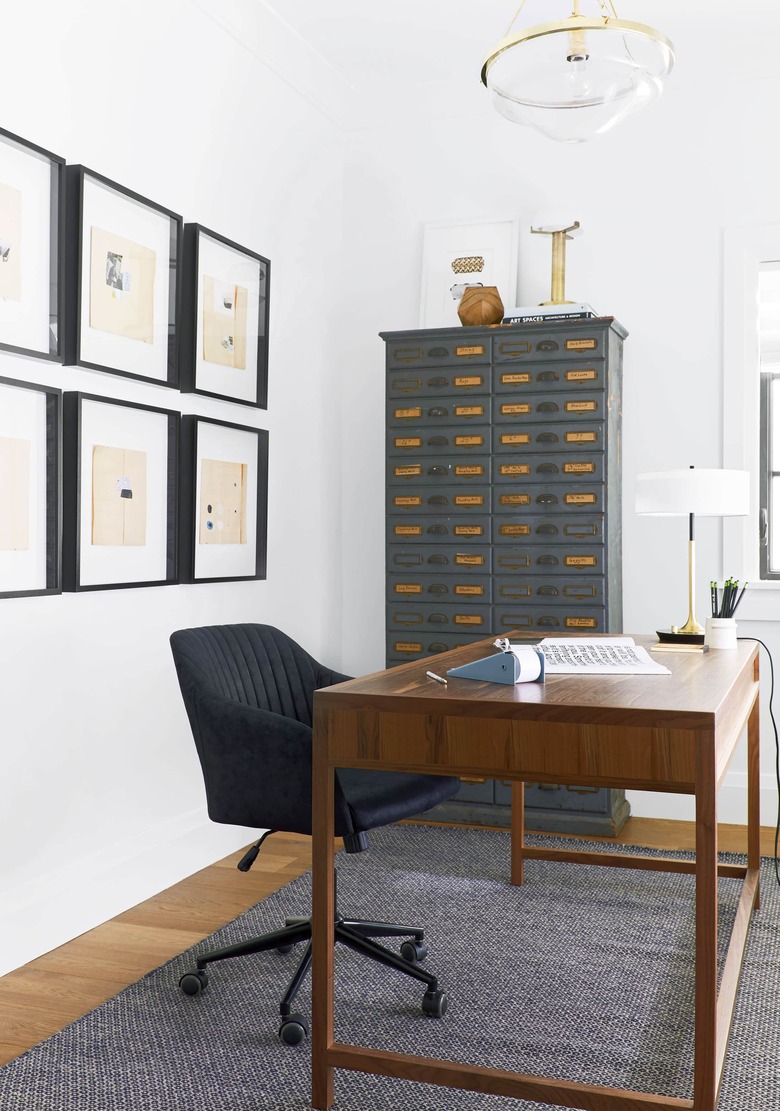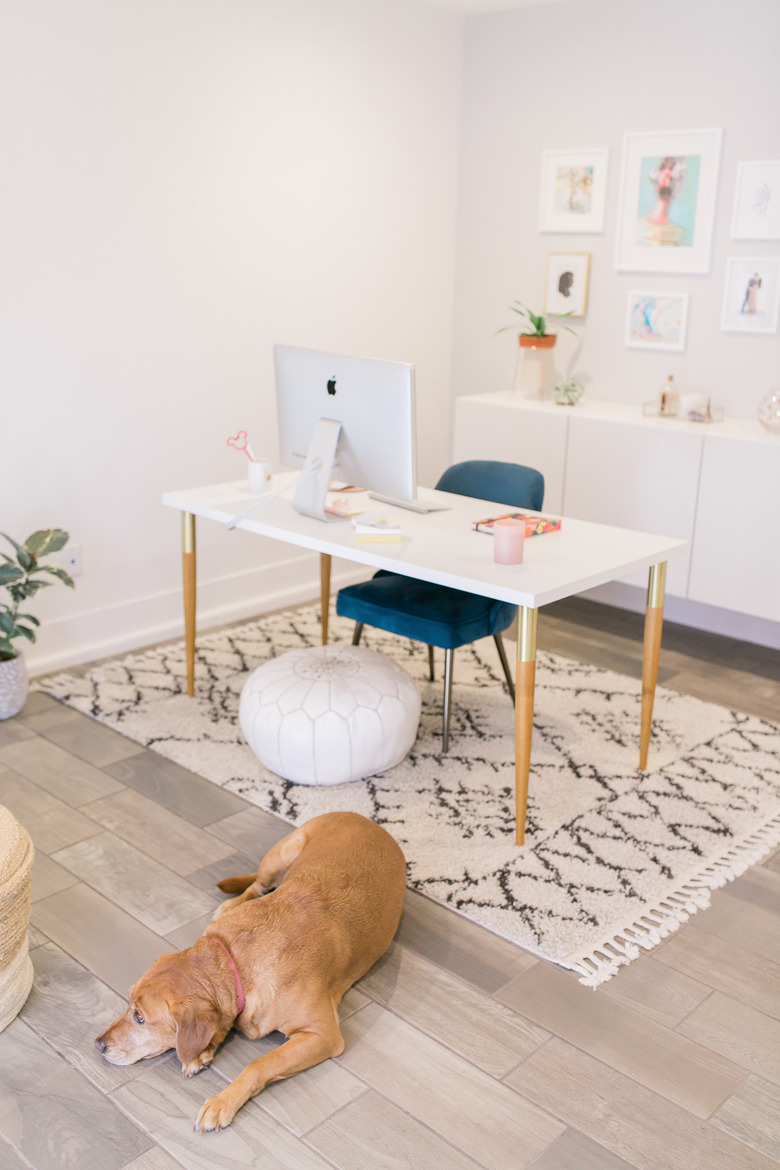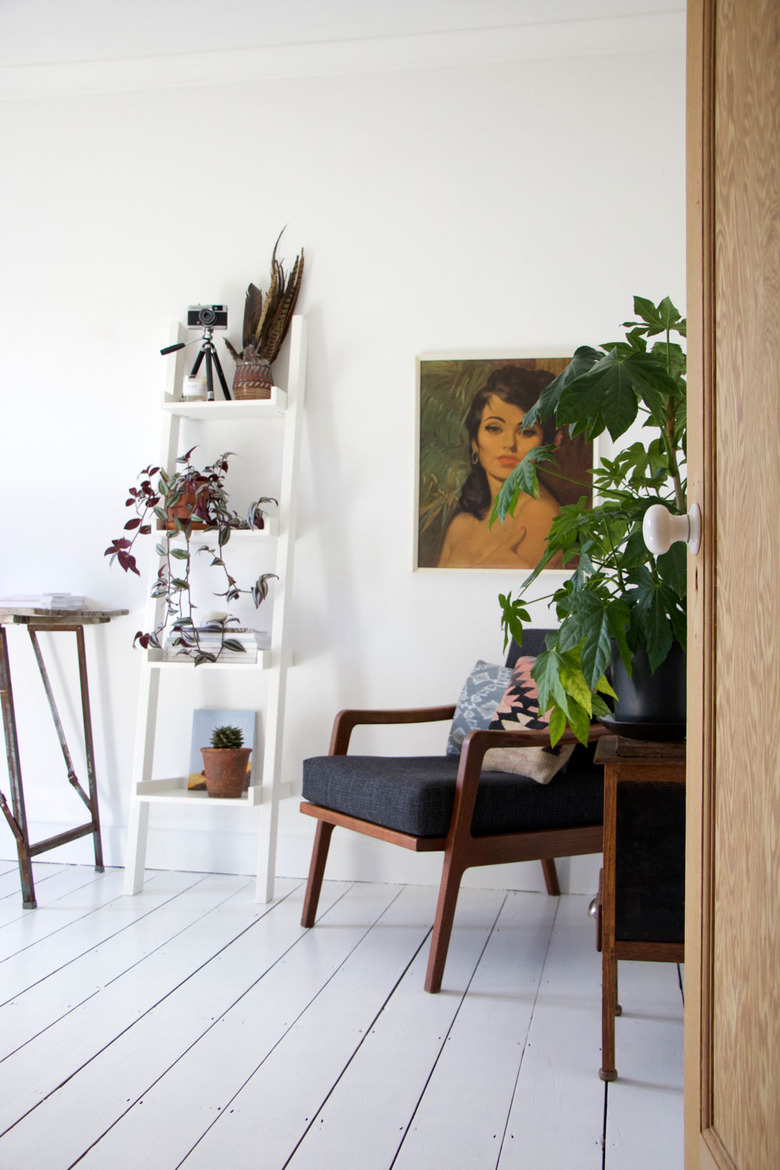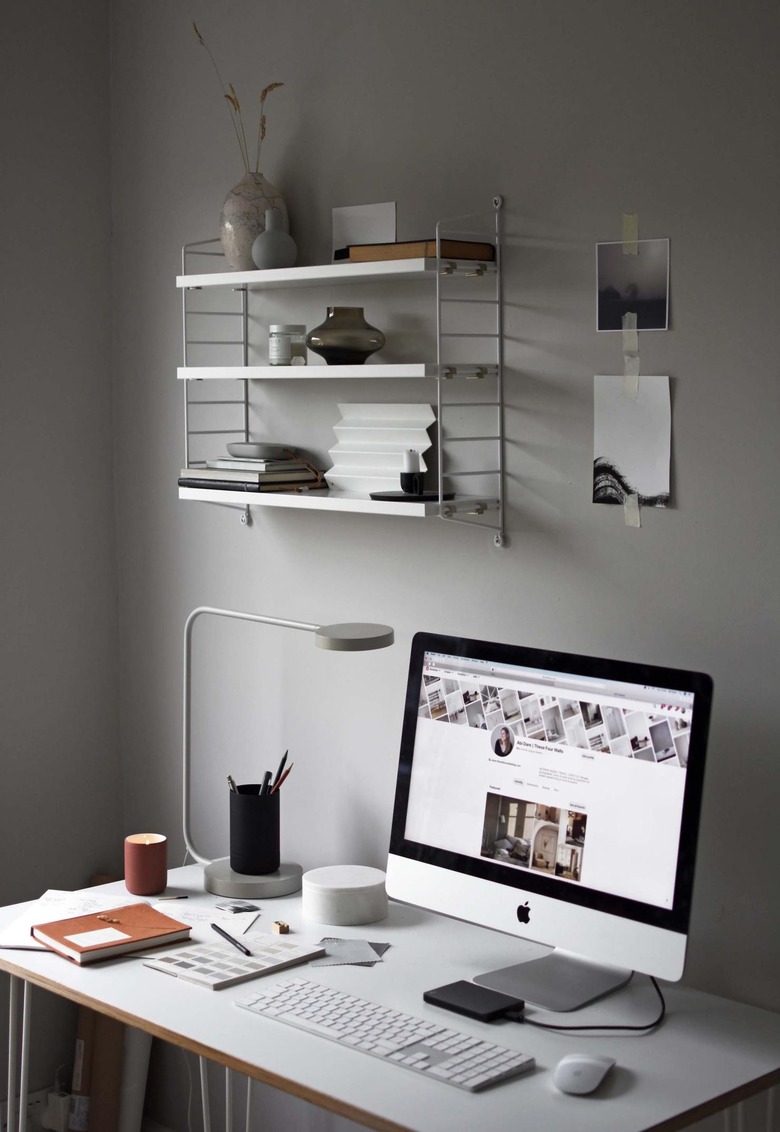7 Feng Shui Home Office Ideas To Make Your Work Zone Feel Balanced Even When You Don't
Did you know that having feng shui in your home office can help maximize the workspace's flow of good energy? That's right. This ancient Chinese art of space and ch'i (the Chinese term for energy) harmonization is ideal for bringing balance to any room.
If you're not sure where or how to get started, these basic feng shui principles will get you off the ground, but there are a lot of quick fixes that don't require too many major changes. And while the practice might date back to 960 BCE, the tips are truly timeless! Here are our recommendations.
1. Know your walls.
1. Know your walls.
First, establish the layout of your home office to create the perfect feng shui. Directionality is hugely important, and being clear on what's known as the "four directions" will help you decipher the best locations for your furniture. Use a compass (most smartphones have them) to determine which wall is which. Here's what each one means:
- The South Wall represents fire and fame. Use it as a focal point of the room with statement art or a fireplace.
- The North Wall represents water and professionalism. Hang your personal achievements here.
- The East Wall represents wood, family, and ancestors. Honor your roots on this wall, and hang family portraits. This is also a great location for plants.
- The West Wall represents metal, children, and creativity. This should be an area for inspiration.
2. Consider materials, shapes, and colors.
2. Consider materials, shapes, and colors.
The materials, colors, and shapes you pick for your home office will have an effect on how the room makes you feel. A wooden desk is the best choice for good feng shui — it will bring a nourishing energy to your space. And it is best to use lighter hues if you want to open up a room. However, a darker accent on the south wall can help you focus.
3. Find the right home for your desk.
3. Find the right home for your desk.
Your desk is probably the most important item of furniture in your home office, so getting the positioning right is essential. As mentioned previously, the right layout can promote a good flow of energy and enhance your productivity. The wrong one could be detrimental. Consequently, you might prefer to avoid desk placements that face the wall, face the window, sit directly in line with the door, or force you to sit with your back against the door. For the most effective layout for good feng shui, arrange your desk so you can see the door with a solid wall behind you. This is called a feng shui commanding position.
4. Clear your space of clutter.
4. Clear your space of clutter.
One of the simplest ways to bring good feng shui to your home office is to declutter the space and keep it clean. It's easy to understand why a constantly disorganized workspace may not be beneficial for productivity. So get rid of any unnecessary items, and clear out old files every month. You should be refreshing your desk at the end of each day to ensure that it's ready to work hard in the morning.
5. Consider your lighting.
5. Consider your lighting.
Both natural light and task lighting in your home office will promote the flow of positive energy. If you're short on natural light, use mirrors to bounce the sunrays around. But make sure your windows have curtains to protect the energy at night. When it comes to desk fixtures, your lamps should be placed on the upper left-hand side of the surface, as this is considered the wealth area of your home office.
6. Add plants.
6. Add plants.
Plants look great in a home office, and some also have the capacity to cleanse the air which will help with the overall quality of feng shui in your workspace. Additionally, the act of repotting or watering your greenery can elevate your ch'i and make you feel more grounded. Consider air-purifying options such as snake plants and aloe vera.
7. Bring in your personality.
7. Bring in your personality.
A feng shui home office isn't necessarily about being minimal or void of personality; it's about bringing objects and decor to the right places and forming a balance. You can create your own energy with artwork, crystals, candles, objets d'art, and stationery items. Remember, your abstract pieces should go on the west wall, while the south wall is for statement pieces.




